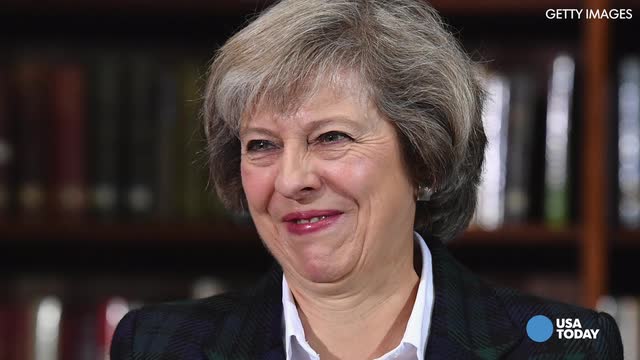5 surprising things Theresa May has done since becoming U.K. prime minister

Theresa May became Britain's prime minister on July 13, after her predecessor, David Cameron, stepped down because of his failed campaign to keep the United Kingdom in the European Union.
Here are five surprising things May has done since taking office:
Made Johnson foreign secretary
Perhaps the biggest shock she sprang on the British public was appointing the flamboyant and outspoken former mayor of London as foreign secretary on her first day on the job. The New York-born Johnson has a penchant for undiplomatic comments — he described President Obama as "part-Kenyan" with an "ancestral dislike" of the British empire, and said Democratic presidential nominee Hillary Clinton was “like a sadistic nurse in a mental hospital.”
This year, Johnson won a $1,300 prize in an “offensive poetry” competition by the British political magazine the Spectator, in which he wrote a limerick about Turkish President Recep Tayyip Erdogan having sex with a goat. Johnson is currently the most senior official in the country while May vacations in Switzerland.
Shunned 10 Downing Street
May and her husband, Philip, rejected 10 Downing Street, the prime minister’s official residence, to move into No. 11, the more spacious apartment next door. Cameron also lived in No. 11 with his family, as did Tony Blair, prime minister from 1997 to 2007. Philip Hammond the Treasury chief, took residence at No. 10, as did his predecessor, George Osborne. May's official office, where she works, is at No. 10. Downing Street.
Angered China by delaying a nuclear power plant project
May provoked the ire of China’s ambassador to Britain when she delayed approving a new nuclear reactor at the Hinkley Point power station in Somerset, southwestern England, in late July. The $23 billion project is being funded by a Chinese nuclear power provider and French energy firm EDF. Under the deal, state-owned Chinese firms were set to own 34% of the plant, with the chance to build a nuclear reactor in Essex, also in southern England.
Liu Xiaoming, China's ambassador to Britain, warned that the nations were at a "crucial historical juncture" and said he hoped the Britain would keep its door open to China, according to the Financial Times. May had concerns about China's involvement in such critical infrastructure and whether the project was cost effective, the Guardian reported. May later wrote a letter to Chinese President Xi Jinping said to be “about reassuring the Chinese of our commitment to Anglo-Chinese relations.”
Set up a meeting with Putin
May spoke to Russian President Vladimir Putin this month. In an Aug. 9 statement, her office said May hoped "they could communicate in an open and honest way about the issues that mattered most to them.” During the phone call, the British and Russian leaders agreed that their citizens faced common threats from terrorism, and said they looked forward to meeting at the G20 summit in China in September.
The U.K. parliament admits it “has some of the most difficult relations with Russia” following the 2006 death of British citizen Alexander Litivinenko, a former Russian spy who was poisoned by a radioactive substance put in his tea at a London hotel. A public inquiry into the death in 2014 concluded that Putin likely approved of Litivinenko's assassination.
Faced accusations of ‘bribing’ families to accept fracking
May was subjected to accusations of “bribery” this month after her government unveiled a plan to give cash payments from a $1.3 billion fund to families affected by fracking for shale gas. Northern England has 1,300 trillion cubic feet of shale gas, the British Geological Survey estimates. “Does Theresa May really hold the British public in such high esteem that she thinks they can be bribed into fracking and a fossil fuel future?” said Labour Party lawmaker Barry Gardiner, according to the Guardian. Doug Parr, Greenpeace‘s chief U.K. scientist, added: “People's concerns about climate change and their local environment cannot be silenced with a wad of cash.”
The government says the plan would ensure that the benefits of the developments are shared by local communities.